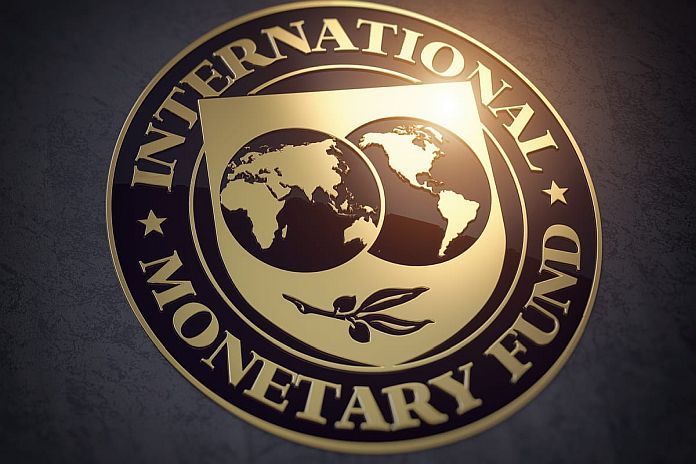By Peter Breuer and Charles Cohen
When corporations have too much debt and need to restructure it, creditors often end up exchanging bonds or loans for stocks. They trade the guaranteed payout of a fixed-income investment for an equity position whose return depends on the company’s future results. In other words, investors accept to share risk.
Could a similar mechanism be applied when a sovereign nation has to restructure its debt, tying payouts to its future economic performance? New IMF research looks at possible innovative sovereign debt instruments that could do both: help creditors and debtors reach agreement on how to restructure debt by sharing some upside potential, and make a country’s debt portfolio more resilient to future shocks.
COVID-19’s huge economic shock finds about half of low-income countries and several emerging markets already in or at high risk of a debt crisis. And sovereign debt levels are expected to rise, by about 17 percent of GDP in advanced economies; 12 percent in emerging markets; and 8 percent in low-income countries, compared to pre-pandemic expectations. The COVID-19 crisis has also ushered in a period of great macroeconomic uncertainty. In this situation, the prospects for a sovereign’s ongoing ability to service its debt are more uncertain than at any other juncture, potentially making creditors less willing to accept a permanently diminished claim.
Prolonged negotiations, lack of market access and high uncertainty during a restructuring can deprive nations of desperately needed funds for an extended period, reducing priority spending and investments required to grow the economy and allow the country to service its debts. In trying to avoid this downward spiral, some governments may be tempted to accept unfavorable restructuring terms that end up triggering the same problems again in a short space of time.
Contingency plan
The pandemic might be the force that catalyzes long overdue innovation in the sovereign debt market. This could facilitate less protracted and simpler restructurings, and help avoid them in the future.
Debt instruments that adjust payouts to creditors according to (or “contingent on”) the sovereign’s future health—measured by GDP, exports, or commodity prices—could help break this negative cycle. In an economic slowdown, these “state-contingent debt instruments” would maintain debt relief that a country obtained in a restructuring. In an upswing, they would automatically provide additional compensation to creditors as the country’s ability to pay improves.
This commitment may allow the country to reach agreement on a larger cut of its debt burden upfront and make it more sustainable going forward, particularly as it regains quicker market access. Further designing a symmetric instrument offering larger relief in a downside scenario could permit agreement to be reached around a more favorable baseline, providing value recovery for investors and downside protection to the country.
Implementation challenges
Despite the appeal of state-contingent debt instruments in these uncertain times, longstanding implementation difficulties remain and their design needs to incorporate lessons from experience. Creditors have historically discounted these instruments given their untested nature, idiosyncratic risk profiles, and resultant lack of trading liquidity. Such concerns can be addressed by tying state variables, such as GDP growth or commodity prices, closely to the debtors’ repayment capacity and ensuring that the measurement of state variables is shielded from data manipulation.
Wider usage and standardization of terms would allow investors to understand state-contingent contracts better, provide better price formation and foster trading in the secondary market. To address borrowers’ concerns, the payout formula should be transparent and provide countercyclical relief, while also capping excessive payouts.
Hurricane insurance
Restructurings can also enhance a country’s debt portfolio resilience by including insurance-like clauses that provide relief when shocks—such as hurricanes or other natural disasters—strike. Lenders have been willing to provide hurricane insurance to some Caribbean countries in the form of interest forbearance and maturity extension. Such clauses enhance a country’s repayment capacity at the time of crisis, benefitting both sides. A restructuring offers a unique chance to exchange the entire debt stock for new securities with these mechanisms, keeping all creditors on equal footing.
An even more ambitious goal would be the development of instruments that could prompt automatic debt standstills in a global crisis (like the current pandemic), helping developing countries cope with an unexpectedly large shock. However, defining an appropriate triggering event remains difficult. One possibility is to link future private-sector debt standstills to official sector standstills, as this would serve as an appropriately strong indication of the severity of the crisis.
State contingent debt instruments can be useful in certain situations. But they are no panacea for the inherent challenges of a sovereign debt restructuring. Other comprehensive reforms are needed, as detailed in other recent research on strengthening debt architecture. Optimizing their design in light of past experience may allow contingent instruments to play an important role in facilitating speedier and less costly debt restructurings, while making countries more resilient against future shocks. Now is the time to tackle this challenge.
![]()





